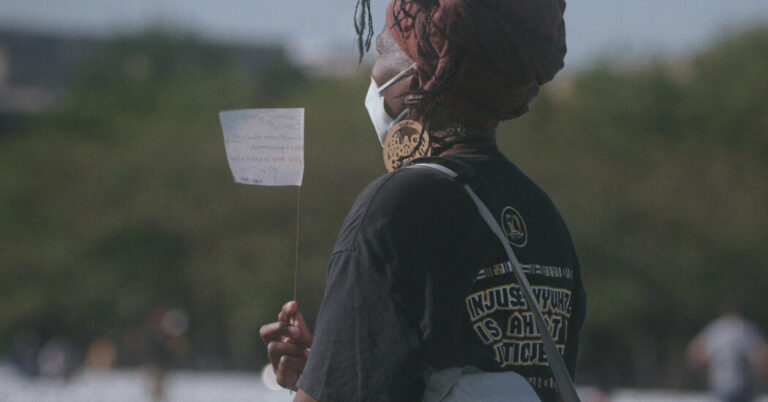NCAA Bars Transgender Athletes From Women’s Sports After Trump Order
#news #newstoday #topnews #newsupdates #trendingnews #topstories #headlines
Transgender women will be barred from competing in N.C.A.A. women’s college sports, the sports organization announced on Thursday, a day after President Trump effectively forced the decision by reversing federal policy.
That decision, effective immediately, followed Mr. Trump’s signing of an executive order asking his agencies to withdraw federal funding from educational institutions if they defied him and let transgender girls and women compete.
“We strongly believe that clear, consistent and uniform eligibility standards would best serve today’s student-athletes instead of a patchwork of conflicting state laws and court decisions,” Charlie Baker, the president of the N.C.A.A., said in a statement. “To that end, President Trump’s order provides a clear, national standard.”
The N.C.A.A.’s previous policy on transgender athletes left the decision up to each sport’s national governing body. The rules varied by sport, especially as to how much testosterone could remain in a transgender woman’s blood following hormone therapy. USA Volleyball, for instance, allowed an athlete to compete as a woman even with testosterone levels typical of many men. U.S. Rowing’s limit for college athletes was just one-fourth of volleyball’s.
The new policy limits women’s competition to athletes assigned female at birth, and covers all of the N.C.A.A.’s sports. Appearing before Congress last year, Mr. Baker said that there were fewer than 10 transgender athletes among the 500,000-plus students who play N.C.A.A. sports.
“It’s like taking a bulldozer to knock down the wrong building,” said Suzanne Goldberg, a professor at Columbia University Law School and an expert on gender and sexuality law, adding that the policy distracts from the serious problem of girls and women not having equal opportunities in sports.
She said she was startled by how quickly the N.C.A.A. moved, given the anticipated legal challenges that, if successful, could nullify or at least postpone the new federal rules. “A 180-degree turn in a day suggests that this wasn’t an evidence-based change in the policy,” she said.
The order will affect more than transgender athletes, Ms. Goldberg said, adding that it might force women suspected of being transgender to answer invasive personal questions or undergo physical examinations.
But transgender Americans’ access to their chosen sports and bathrooms was a potent political issue in the 2024 election, and the move to restrict women’s sports to those assigned female at birth is likely to have widespread support. A New York Times/Ipsos poll in January found that 94 percent of Republicans and 67 percent of Democrats believed transgender women should not compete against other women.
Mr. Trump’s executive order, titled “Keeping Men out of Women’s Sports,” is based on the administration’s interpretation of Title IX, the 1972 civil rights law prohibiting sex discrimination in educational programs that receive federal funding. Barring transgender girls and women from women’s sports was one of Mr. Trump’s campaign promises.
The order also directs the State Department to demand changes within the International Olympic Committee, which has left eligibility rules up to the global federations that govern different sports.
“From now on, women’s sports will be only for women,” Mr. Trump said on Wednesday after signing the order, as a group of female athletes surrounded him.
The debate over transgender women playing college women’s sports has grown fierce in the past several years. In 2022, Lia Thomas, a swimmer, competed on the University of Pennsylvania women’s team after taking testosterone blockers and estrogen. When she won the 500-yard freestyle event at the N.C.A.A. national swimming championship, she became the first openly transgender woman to win an N.C.A.A. Division I title.
Last March, a group of college athletes sued the N.C.A.A. for allowing Ms. Thomas to compete, saying her participation in a women’s event had violated their Title IX rights. And on Tuesday, three University of Pennsylvania female swimmers sued the school, the Ivy League and Harvard University, which hosted the 2022 Ivy League swimming championships. The lawsuit said Ms. Thomas’s participation in those championships and other Ivy League meets was an “illegal social science experiment” and that her competitors were “captive and collateral damage.”
Bill Bock, the swimmers’ lawyer, said in a statement that the institutions named in the suit sought “to impose radical gender ideology on the American college sports landscape.”
Mr. Bock also represents the female volleyball players who sued San Jose State University, the Mountain West Conference and others in November for allowing a transgender woman to play on San Jose’s team. Five volleyball teams boycotted matches last season against the school because of the player.
On Thursday, following Mr. Trump’s order, the Education Department announced that it would investigate the University of Pennsylvania and San Jose State University for civil rights violations.
Twenty-five states have barred transgender athletes from competing on teams consistent with their gender identity, according to the Movement Advancement Project, an L.G.B.T.Q. advocacy group that tracks legislation. Some of those laws, however, have been blocked while lawsuits against them make their way through the courts.
Doriane Coleman, a Duke University law professor and an expert in gender and sports, said the N.C.A.A. would remain subject to the “laws of the locales in which it holds competitions,” and that the organization’s effort to make a clear and consistent policy regarding transgender athletes might be subject to pushback.
Both the order and the N.C.A.A. policy will most likely be challenged in court, she said, where their legality “will rise or fall on the answer to the question of whether ‘sex’ under Title IX means only biological sex or includes gender identity.”
Athlete Ally, an advocacy group that seeks to end transphobia and homophobia in sports, said in a statement on its website that it hoped the policy change would not affect students’ “inalienable sense of worthiness and belonging.”
“Our hearts break for the trans youth who will no longer be able to know the joy of playing sports as their full and authentic selves,” the group said.
Zach Montague and Talya Minsberg reporting.
Check out our Latest News and Follow us at Facebook
Original Source







